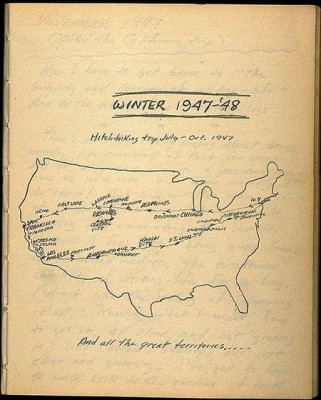
Guardian article
about free eBook, On the Road for
17527 Miles by
Gregor Weichbrodt, which maps the route of Jack Kerouac’s On The Road, with
Google driving instructions.
Read article here
Access eBook here

Guardian article
about free eBook, On the Road for
17527 Miles by
Gregor Weichbrodt, which maps the route of Jack Kerouac’s On The Road, with
Google driving instructions.
Read article here
Access eBook here
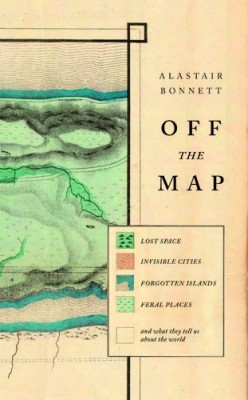
New book by Alastair Bonnett: Off the Map: Lost Spaces, Invisible Cities, Forgotten Islands, Feral Places and What They Tell Us About the World (Aurum Press Ltd, 2014)
Review of book in The Guardian – read here
Review in The Telegraph – read here
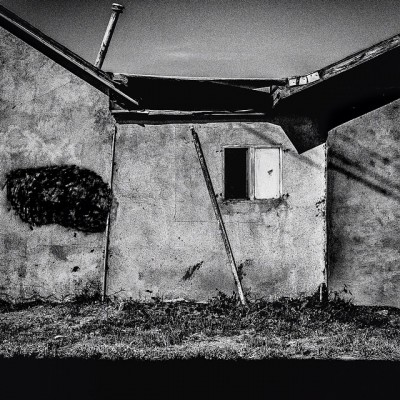 The Geography of Poverty: www.geographyofpoverty.com/
The Geography of Poverty: www.geographyofpoverty.com/
Reblogged from Progressive Geographies
What is Space: a Post-Disciplinary
Workshop on the Return of an Old Debate
Institute of Advanced Study, University of Warwick.
17 June 2014. Poster here.
The eternal silence of these infinite spaces
frightens me (Pascal, Thoughts, 1964)
Space is the everywhere of modern thought. It is
the flesh that flatters the bones of theory. It is an all-purpose nostrum to be
applied whenever things look sticky. (Crang and Thrift, Thinking Space, 2000)
The
question of space has in both the humanities and the social sciences recently
regained prominence on academic agendas. The so-called ‘spatial turn’,
initially set in motion by geographers, has allowed historians, philosophers,
sociologists, anthropologists, artists and others to return to the long
abandoned, albeit fundamental, question of what space is. This reengagement has
resulted in a gradual, ongoing questioning and re-opening of the great debates
that earlier characterised the European Renaissance. Contemporary discussions
and writings about space have led to a multiplication of literal and
metaphorical spatial references ranging from ‘location’, ‘terrain’, ‘site’,
‘region’ among countless others. This intellectual enrichment means however
also that the question of space has become an increasingly messy, ambiguous and
sometimes even incongruous affair.
This workshop invites junior
and senior academics from across the University to explain and demonstrate how
they conceptualise space in their work. We believe that the problem of space is
too important to be left to one discipline. The objective of this one-day
workshop is therefore to deterritorialise and transcend the longstanding
disciplinary academic divisions and to reengage academics from all departments
in an attempt to build bridges over the vast rivers that have come to divide
us. The goal is not so much to arrive at a common consensus, nor to find a
universally acceptable solution to the fundamental problem that space poses to
us, but to openly start questioning and speculating again about the meaning we
give to the concept.
We invite abstracts of no more
than 300 words for papers of approximately 20 minutes in length, accompanied by
a short biographical note. Please email all abstracts and inquiries to the
convenor, Dr Marijn Nieuwehuis. The deadline for the receipt of all abstracts is
the 6th of May 2014. We can discuss the possibilities of combining
the workshop papers into an edited volume.
This workshop is funded by the Institute of
Advanced Study, University of Warwick.
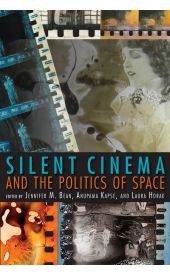
New Publication: Silent Cinema and the Politics of Space
Edited by Jennifer M. Bean, Laura Horak, and Anupama Kapse (Indiana University Press, 2014).
http://www.combinedacademic.co.uk/fi/38400-silent-cinema-and-the-politics-of-space.html
Video: David Harvey and Andy Merrifield in conversation at Birkbeck:
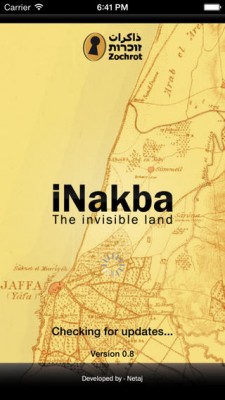 Remembering the Nakba: Israeli group puts 1948 Palestine back on the map
Remembering the Nakba: Israeli group puts 1948 Palestine back on the map
Guardian article about an app designed by the Israeli activist organisation Zochrot. The i-Nakba phone app will allow users to locate any Arab village that was abandoned during the 1948 war on an interactive map, learn about its history (including, in many cases, the Jewish presence that replaced it), and add photos, comments and data.
Read more at: http://www.theguardian.com/world/2014/may/02/nakba-israel-palestine-zochrot-history
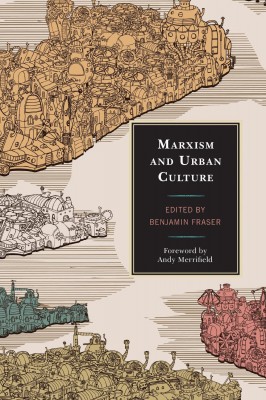
The edited volume Marxism and Urban Culture has now been published by Rowman & Littlefield. The book is edited by Benjamin Fraser [executive editor of Journal of Urban Cultural Studies], and includes a forward by Andy Merrifield.
Further details of the book here
My chapter in the volume is ‘The Archive City: Film as Critical Spatial Practice’.
Chapter abstract: In The Production of Space, Henri Lefebvre describes film as an ‘incriminated medium’ (Lefebvre 1991; Roberts 2012a) that allows for, at best, only partial understandings of and engagements with the dialectics of urban space. If anything, for Lefebvre, film, like other visual media, distorts and fragments space as it is otherwise lived in the everyday. Insofar as the moving image, in all its phantasmagoric forms, is complicit in the reduction of cities to spectacular and virtual spaces of representation – a process described as the ‘cinematization’ of urban space (Abbas 2003; Roberts 2012a) – Lefebvre’s contention can be clearly evinced. However, at the same time it represents something of a broad-brush and un-nuanced dismissal of the role of film in terms of its capacity to mobilise more critical understandings of the dynamic and multi-layered spatialities of ‘the material and symbolic city’ (Highmore 2005). In this chapter I explore the scope for archive film imagery to prompt re-evaluation and re-imaginings of urban landscapes as spaces of ‘radical nostalgia’ (Bonnett 2009) where past and present are brought into dialogue and tension. As well as demonstrating the ways that archive film can function as a form of spatial critique (Keiller 2005), the chapter also sketches the outlines of ‘cinematic cartography’ (Roberts 2012b) as a hitherto under-developed mode of critical urban practice. Drawing on four years of research conducted in the UK city of Liverpool (Roberts 2012a), and considering archival film practices recently developed by film archivists in Bologna, I argue that by mapping and engaging with the ‘archive city’, film can offer a means by which the representational spaces of the past can be harnessed and mobilised as part of a wider Marxian politics of urban spatial practice.